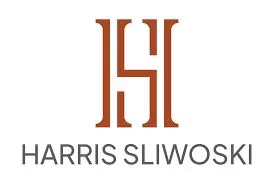"Everything" is Recorded . . . .
With smartphones in everyone's pockets, secretly recording conversations has become almost second nature for some. These recordings might seem like the ultimate evidence in legal battles, but beware: they're usually inadmissible in court and often illegal to obtain. So, what happens when your "smoking gun" is an illegal recording? Let's dive into California's privacy laws and see how to navigate this tricky terrain.
Understanding California's Privacy Laws
California is a two-party consent state. This means you need the consent of all parties to record a private conversation or phone call. Both audio and video recordings fall under this rule. California eavesdropping laws make recording a conversation without everyone's consent illegal, bringing serious criminal and civil penalties.
This presents a big problem in litigation. The most compelling evidence, as any armchair detective knows, is a recording of the other party caught red-handed. But finding out this crucial evidence is unusable—or worse, puts your client in legal jeopardy—is a tough pill to swallow.
The Silver Lining: The Impeachment Exception
Savvy litigators know there's always an exception to the rule. In California, while illegally obtained recordings can't be used as primary evidence, they can be a game-changer for preventing perjury and impeaching witnesses. This means you can't use the recording to directly support your case, but you can use it to call out a witness who changes their story on the stand. However, leveraging this exception isn't straightforward, as I recently discovered.
A Real-World Example: My "Smoking Gun" Experience
My "smoking gun" was an audio recording made on a smartphone at a restaurant. I argued to the court that because the secret recording was made in a public place, there was no reasonable expectation of privacy, and it was therefore legal. The judge did not agree, ruling that being in a public place does not nullify privacy expectations. Goodbye, smoking gun, unless. . . .
I switched tactics and argued that the audio recording should be allowed for impeachment purposes. California law permits using illegally obtained recordings to impeach a witness at trial if the value in exposing the lie on the stand outweighs the potential harm that would be caused by admitting it into evidence.
Initially, the judge in my case did not agree to admit the recording. After oral argument, during which the judge expressed concern about the audio recording itself, I offered to have it transcribed and certified. This way the judge could review the offered impeachment and rule on its admissibility on a case-by-case basis. The judge agreed, and once the recorded defendant lied on the stand, I was able to point to a specific statement transcribed from the audio recording to impeach the witness. It was a "gotcha" moment thanks to the audio transcription.
Conclusion: Navigating the Legal Maze
Using secret recordings in California litigation can be tricky and full of potential problems. Knowing the specific exceptions for impeachment in California can mean the difference between winning and losing in court. Always handle such evidence carefully but remember it can be a powerful tool to expose lies on the stand.
To view the original article, click here.
The content of this article is intended to provide a general guide to the subject matter. Specialist advice should be sought about your specific circumstances.


